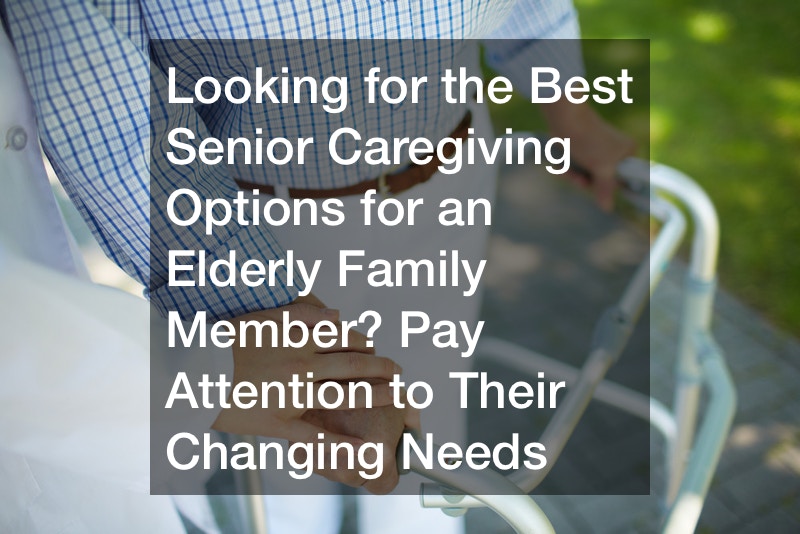
Caring for aging family members can be a challenge, especially as the level of care they need can increase as they grow older. Caregivers can help by planning for their loved one’s needs and understanding some of the most common issues that the aging population deal with. Responding to your aging family member’s needs and adjusting accordingly can be one of the best ways to ensure that they are getting the care that they need and not being put at risk.
Some of the most common issues that aging individuals face can include loss of hearing, cataracts, osteoarthritis, neck and back pain, chronic obstructive pulmonary disease, depression, diabetes, and dementia. While not every aging person will experience these issues, they are some of the most common, and knowing how to adjust to some of them can help improve how you care for your loved one.
1. Memory Difficulties

Memory problems such as those associated with Alzheimer’s and dementia are common among seniors even if they don’t grow to be severe enough to warrant full-time memory care. If your loved one is having trouble remembering familiar things and people, becoming more forgetful about recent events, having difficulty doing familiar things, or getting easily disoriented when going to places that were previously familiar, you should check with their primary care physician to see what medical steps can be taken to slow memory loss or manage it.
Memory problems can be caused by a myriad of things such as:
- Reaction to medication
- Vitamin deficiency
- Infection
- Stroke
- Depression
- Dehydration
- Dementia
It will be important to determine the cause of the memory problems so that you can start to take steps towards either rectifying them or managing them. In some cases, using a neurological rehabilitation service can help provide cognitive stimulation and training without having to depend on pharmacological treatments wholly.
Along with getting medical help, you can also do things every day to help make daily life easier for your loved one with memory problems. For instance, it’s imperative that you remain flexible and patient and help them better remember new information by repeating it often and breaking down activities into smaller steps. You should also try to stick to the same routine as closely as possible, as this can help them remember what needs to be done that day. If they need to remember important information, make sure to write it down in an easy-to-see place. You may also want to start practicing using verbal cues. For example, if another family member comes over, you can introduce them by their name and relationship to help stimulate their memory of them.
Additionally, when caring for your loved one, try to keep household items in the same place and don’t move too much around. Familiarity is key, and even small things can help those with memory problems remember important things.
2. Diabetes
Around one in four adults over 60 have diabetes, and having this condition can put them at risk for complications. Diabetes has even been linked to Alzheimer’s disease and dementia, as high blood sugar can affect the brain over time, leading to problems with memory, reasoning, and the ability to learn. In addition to this, having diabetes can also worsen flu symptoms, causing complications such as bronchitis and pneumonia. Vision problems are also common in elderly individuals with diabetes because it can lead to glaucoma, retinopathy, and cataracts.
Fortunately, you can help your loved one manage their diabetes by enacting some lifestyle changes, as well as helping them remember and administer needed medication, such as supplements to lower blood sugar. Some changes to consider include helping them maintain a healthy weight, increasing their exercise, improving their diet, and quitting smoking. You should also help your loved one check their blood sugar regularly throughout the day to ensure that it isn’t dropping too low or spiking too high.
Make sure to help your loved one make every appointment and checkup with their healthcare team. Internal medicine physicians can help monitor their diabetes and take steps to mitigate problems before they spiral out of control. If your loved one is struggling with memory problems, you may also want to go along to these appointments with them to ensure that everything the doctor says is remembered. Taking notes during the appointment can also be exceptionally helpful so that you don’t miss any information.
With diabetes, you will also want to make sure that your loved one is eating correctly to manage their condition. This means including fewer sugars and carbohydrates in their diet. If you are helping them cook their meals or cooking for them yourself, you should always keep their diabetes in mind while in the kitchen.
Additionally, you’ll want to examine your loved one’s feet regularly because diabetes complications can even result in amputation if issues aren’t caught soon enough. Make sure their feet stay clean and dry, and check for injuries, cuts, blisters, and swelling regularly.
3. Limited Mobility

As a caregiver to your aging loved one, you’ll want to anticipate limited mobility and take steps to reduce the risk of falls or accidents. Falls are the leading cause of injury and injury-related death among those over the age of 65, meaning that this isn’t something to take lightly.
If your loved one can still walk around their home with or without the help of a mobility aid, you’re going to want to take steps to fall-proof the house. This involves adding slip-proof rugs, wall rails and possibly even ramps. Take time to thoroughly inspect your loved one’s home and try to find things that might cause accidents such as raised thresholds, unsecured rugs, tables that stick out, and uneven flooring. You should also try to keep things such as electrical wires tucked away from walking paths and arrange any furniture so that walkways are well defined.
In addition to this, investing in an adjustable bed can make it easier for those with limited mobility to get in and out without risking a fall. Adding bedrails can also give them something to hold on to while sitting and standing, and it can also lower the risk of them rolling out of bed in the middle of the night.
When it comes to mobility aids for walking, you may want to consider Medicare enrollment if your loved one isn’t already enrolled. Medicare Part B can cover powered vehicles such as scooters, as well as walkers and wheelchairs. If you’re not sure about what coverage you have or what types of things are covered, you can ask a Medicare health claims administrator for a detailed list.
4. Oral Health
Another problem that many seniors face is problems with their oral health and teeth. Experiencing a toothache from cracked teeth can be common as their teeth wear down and become more fragile after a lifetime of eating and drinking. In some instances, dentures or bridges can be needed as teeth crack and break. Wisdom teeth can also start to break through in seniors, if they hadn’t before, which can cause pain and infection if not taken care of. This makes having regular dental check-ups important, as your dentist can detect these issues before they occur and recommend your loved one to an oral surgery practice so that they can get the in-depth treatment they need.
While some of these issues are unavoidable, there are steps you can take to help keep your loved one’s oral health in good condition. For example, you should try to ensure that they brush and floss their teeth at least twice every day. An antiseptic mouthwash should also be used at least once daily. This mouth rinse can help reduce bacteria and limit plaque build-up as well as lower the risk of gum disease.
When heading in for a dental check-up, you should make sure to note any changes that your loved one has experienced, such as loose teeth, difficulty tasting, chewing, or swallowing, any pain or discomfort, and any swelling, or bumps that have appeared in the mouth. Letting their dentist know these things can help them identify the causes so that the problem can be rectified.
5. Vascular Problems

As people age, the prevalence of peripheral arterial disease, venous thromboembolism, and aortic disease increase as alterations related to age occur in the vascular structure which can be impacted by exposure to cardiovascular risk factors. This can lead to vascular complications, some of which may result in needing vascular surgery.
As the heart ages, the pathways that control the heartbeat can sometimes develop fibrous tissues and fat, which causes difficulty maintaining a steady heartbeat. This can result in the heart rate slowing. Some seniors may also experience an increase in heart size, especially in the left ventricle. This is caused by a thickening of the heart wall, which lowers the amount of blood that the chamber can hold. Arrhythmias (abnormal rhythm) and atrial fibrillation are also more common among aging individuals.
The best way to help keep your loved one’s heart healthy is to have regular check-ups with their doctor and report any problems or difficulties that they experience. This can help identify problems quickly so that they can either be managed through medication or lifestyle changes or rectified with surgery.
However, if your loved one does develop a significant cardiovascular problem, especially one that could leave them debilitated, you may want to work with them and an elder law attorney to create a plan of action. For example, specifying someone as the medical power of attorney can give that individual the authority to make healthcare decisions in the event that your loved one isn’t able to communicate on their own. If your loved one currently doesn’t have an estate plan in place or long-term care plans, this is also a time to consider that. An elder law attorney can also help set up an elder conservatorship or guardianship, giving a designated individual responsibility for the care of the elderly individual if they are no longer able to do so themselves.
That said, as a caregiver, there are some steps that you can take to help keep your loved one’s heart in good condition for longer, excluding any pre-existing conditions. Things such as increasing their physical activity in a way that is manageable for them can help keep their hearts healthier. On average, elderly people should be getting at least 150 minutes of physical activity each week. Even something as simple as a daily walk, if they are able, can help achieve this goal. Incorporating heart-healthy foods such as fruits and oatmeal, consuming less red meat, and drinking more water can also have an impact on their overall heart health.
In addition to this, stress can also be a huge contributing factor when it comes to maintaining a healthy heart, so you should look for ways to reduce stress whenever possible. Socialization, medication, and going to support groups are just some ways that you can start helping to do this.
Adapting To Your Loved One’s Needs

When it comes to being the caregiver for a loved one, the task can seem exceptionally difficult. However, by adapting to their changing needs and anticipating future ones, you can help create a plan that makes taking care of them easier both for them and for you. It’s important to keep a focus on both health and comfort, and you don’t want to sacrifice one for the other. Your loved one’s unique medical needs should inform the steps you take to make them comfortable. For instance, fall-proofing their home for mobility problems or providing familiarity and cognitive stimulation for those with memory difficulties.
Although it can be difficult, knowing that you’re providing the care that your loved one needs is wholly worthwhile.



